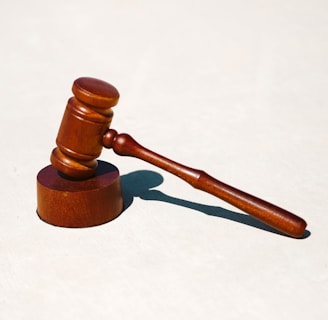The Rise of Regulatory Oversight in Indonesia Influencer Industry
The Rise of Regulatory Oversight in Indonesia Influencer Industry
Diane Wolf
11/11/2024


In recent years, influencer marketing has skyrocketed in Indonesia, with influencers shaping consumer habits and driving brand visibility across social media platforms. Yet, as the power and reach of influencers have grown, so has the need for transparency, ethical conduct, and accountability. Responding to these concerns, the Indonesian government has increased regulatory oversight in the influencer industry. These regulations are reshaping the influencer landscape, making it essential for brands and influencers alike to stay informed and compliant.
Why Regulatory Oversight Is Necessary
Influencers in Indonesia hold substantial sway over their followers, making their endorsements influential for consumers and profitable for brands. However, issues with undisclosed sponsorships, misleading information, and even scams have brought concerns to the forefront. Some influencers have been known to omit partnership disclosures, leading followers to believe that paid endorsements are personal recommendations. This lack of transparency can mislead consumers and has led the government to step in with new regulations designed to create a more trustworthy influencer ecosystem.
The rise in digital scams involving influencers, such as the high-profile arrest of the Thai influencer Natthamon Khongchak in Indonesia, further highlights the need for stricter controls. Khongchak’s case, where thousands were reportedly defrauded through a crypto-related scam, underscores the importance of ensuring that influencers operate within ethical guidelines.
Key Regulatory Changes for Influencers
Indonesia’s regulatory framework now includes several significant changes for influencers and the brands that collaborate with them. Influencers are now legally required to disclose any paid promotions or sponsorships clearly, ensuring that followers are aware when content is commercial. Additionally, influencers must avoid making exaggerated or false claims about products, especially in sectors like wellness or financial services, where misleading claims can have severe consequences for consumers.
Moreover, certain influencers who reach a large audience or operate in sensitive sectors may need to register with government bodies. This registration ensures that authorities can monitor their activities and hold them accountable if they violate industry standards or regulations. These requirements promote transparency and encourage influencers to produce short video production content that aligns with ethical practices.
The Impact on Brands and Influencer Collaborations
The new regulations affect not only influencers but also the brands that work with them. Brands are now held accountable for ensuring their influencer partners adhere to disclosure requirements and avoid making unverified claims. Failing to comply with these regulations can lead to fines or legal action against both the influencer and the brand involved.
Brands are increasingly vetting influencers before entering collaborations, ensuring they are trustworthy and have a history of transparent content creation. This shift benefits the industry by fostering relationships between brands and influencers who are committed to ethical practices, thereby building consumer trust in the long term. For example, brands in sectors such as health, beauty, and finance, where claims need to be factual, are more cautious in choosing influencers who maintain compliance with the new rules.
Adapting to a More Regulated Industry
For influencers in Indonesia, adapting to these regulations requires some changes in content creation and transparency. Influencers must ensure that any partnerships, sponsored posts, or gifted products are disclosed clearly. This can be done by tagging content with terms like “#sponsored” or “#ad,” which signals to audiences that the content is part of a paid promotion. Some influencers have also started using more detailed disclaimers in video captions or introductions, especially on platforms like TikTok live and Instagram reels.
Influencers who fail to comply with these regulations risk penalties, which could damage their reputation and impact future partnerships. As a result, many are prioritizing compliance and transparency, realizing that these practices benefit not only their brand but also their relationship with their audience. Furthermore, by providing audiences with full transparency, influencers can foster a more trusting relationship, which often leads to higher engagement and loyalty.
The Future of Influencer Marketing in Indonesia
The regulatory oversight in Indonesia is reshaping the influencer industry, making it a more transparent and consumer-focused space. As regulations continue to evolve, both influencers and brands are expected to adhere to higher standards of ethics and transparency, enhancing the integrity of influencer marketing. The Indonesian government’s approach has been to address not only the challenges posed by influencers but also the rapid changes in the digital marketing landscape, ensuring that consumer rights are protected.
For influencers who adapt successfully through a TikTok agency usually, or even by themselves, these regulations present an opportunity to build stronger, more credible brands. By adhering to the rules, influencers can establish themselves as trustworthy figures in their fields, setting them apart in an industry where authenticity is highly valued. Meanwhile, brands that prioritize compliance in their influencer partnerships can expect to see better results from campaigns, as transparency is increasingly important to today’s consumers.
Conclusion
The rise of regulatory oversight in Indonesia’s influencer industry marks a significant shift towards a more transparent and accountable digital marketing space. These changes reflect the government’s commitment to protecting consumers while fostering an ethical influencer ecosystem. For influencers and brands, adapting to these regulations is essential for building trust with audiences and ensuring the sustainability of their digital presence. As the influencer industry continues to mature, Indonesia’s regulatory efforts could serve as a model for other countries, showcasing how transparency and consumer protection can enhance the effectiveness and credibility of influencer marketing.
